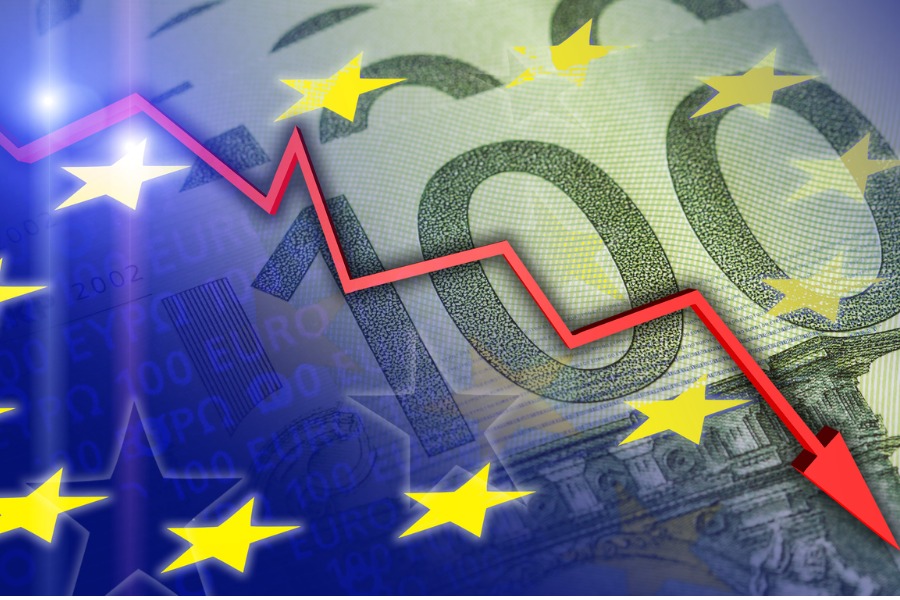

European stocks fell and US equity futures pared earlier gains as disappointing corporate earnings weighed on sentiment.
Europe’s Stoxx 600 index dropped 0.4%, with most sectors in the red. Hugo Boss slumped 11% after cutting its profit guidance in the face of weaker demand for high-end fashion. Miners were the worst-performing industry group, as Rio Tinto Group declined after giving disappointing guidance on its copper operations. Contracts for the S&P 500 were steady.
Investors are looking forward to US retail sales data due later for potential insights on Federal Reserve interest rates. Fed Chair Jerome Powell said Monday that inflation is heading toward the central bank’s 2% goal. Results from Morgan Stanley and Bank of America Corp. will also influence the mood in markets after fellow banking giant Goldman Sachs Group Inc. reported a surge in earnings Monday.
The dollar strengthened against most of its Group-of-10 peers, with trading driven by speculation that Donald Trump is in a stronger position to win the US presidential election. The yen declined against the greenback on wagers that the Japanese currency will remain weak during a second Trump term. Treasury yields ticked lower ahead of the retail sales print.
“Current expectations are pointing to a more subdued state for US consumers, with June retail sales to turn in flat month-on-month, down from previous 0.1%,” wrote Jun Rong Yeap, a market strategist at IG Asia Pte. “That may continue to reinforce market expectations for a September rate cut from the Fed.”
Meanwhile, the MSCI AC Asia Pacific index headed for a third day of losses. Stocks in Hong Kong declined the most in the region, while some stocks in China traded lower as Trump’s selection of JD Vance as his running mate triggered further trade and geopolitical concerns in the region.
New tariffs of 60% on all Chinese exports to the US would more than halve China’s annual growth rate, according to UBS Group AG, underscoring the risks for Beijing if Trump returns to the White House. Vance told Fox News that China is the biggest threat to the US.
Investors have been allocating based on which countries will be seen as friends or foes by Trump, said Kyle Rodda, a senior analyst at Capital.com in Melbourne. “His view of the world is fairly zero sum,” with Japan seen on friendly terms and China in the “bad books,” he said in an interview. “There’s definitely still that figurative pairs trade going on at the moment, which is long Japan and short China.”
Trump’s choice of Vance, who is nearly four decades younger, offers a fresh voice to Republican efforts to bolster their appeal to the working-class workers who were once a bedrock of the Democratic party in battlegrounds such as Michigan, Wisconsin and Pennsylvania.
“The decision is crucial because one-third of US presidents throughout American history have previously occupied the position of vice president,” said Tom McLoughlin at UBS Global Wealth Management. “Moreover, in this instance, Trump’s decision effectively anoints Vance as his successor in terms of delivering a populist message to a younger generation of voters.”
Back on the US monetary policy front, Powell said in an interview that second-quarter economic data has provided policymakers greater confidence that inflation is heading down to the central bank’s 2% goal, possibly paving the way for near-term interest-rate cuts. He made clear he didn’t intend to send any specific message about the timing of rate reductions.
In commodities, oil declined for a third day on concern over weak Chinese demand and the impact of a stronger dollar. Gold rose for a second day.
Key events this week:
Some of the main moves in markets:
Stocks
Currencies
Cryptocurrencies
Bonds
Commodities
This story was produced with the assistance of Bloomberg Automation.

Relationships are key to our business but advisors are often slow to engage in specific activities designed to foster them.

Whichever path you go down, act now while you're still in control.

Pro-bitcoin professionals, however, say the cryptocurrency has ushered in change.

“LPL has evolved significantly over the last decade and still wants to scale up,” says one industry executive.

Survey findings from the Nationwide Retirement Institute offers pearls of planning wisdom from 60- to 65-year-olds, as well as insights into concerns.
Streamline your outreach with Aidentified's AI-driven solutions
This season’s market volatility: Positioning for rate relief, income growth and the AI rebound
